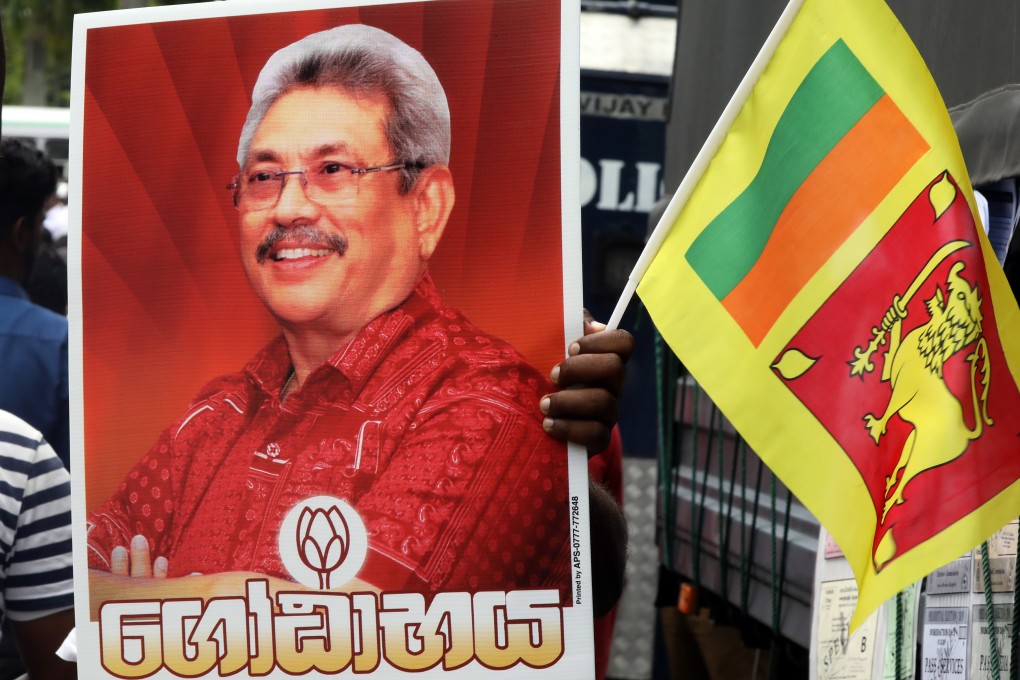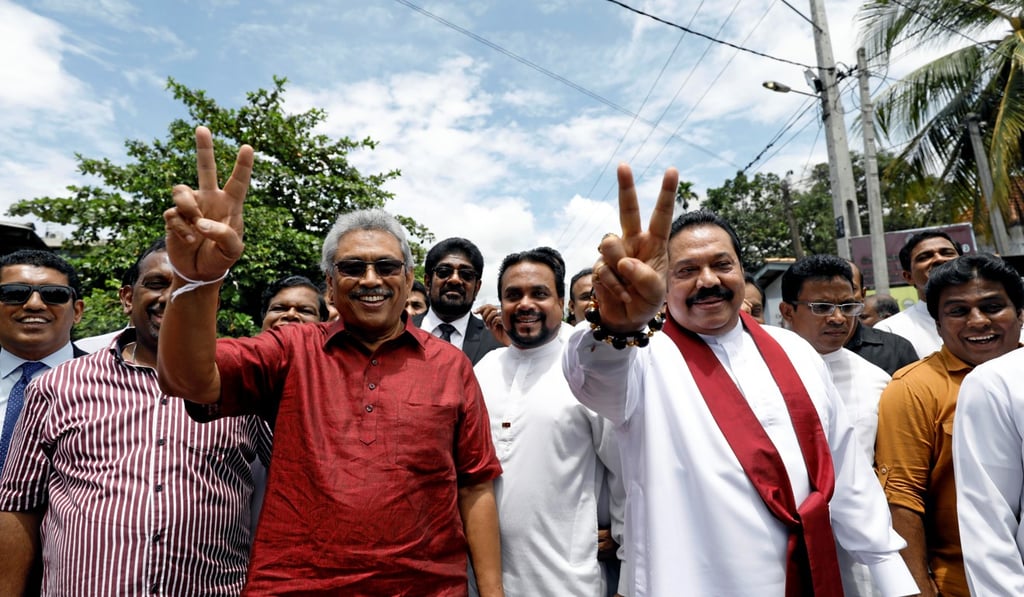Analysis | Will a new Rajapaksa pivot Sri Lanka back from US to China?
- Four years ago, Sri Lanka turned away from the pro-China presidency of Rajapaksa and went in search of US gold
- Now a new Rajapaksa is in town, could its gaze be turning back to China?

A spokesperson for Gotabhaya, a popular former defence secretary from 2005 to 2015, last month said he would “restore relations” with China if he were elected, in a nod to how Sirisena has suspended a raft of Chinese investment projects and demanded changes in others.
“I suppose the thinking was if we upset China, the West would come to us with endless bags of gold … But the bags of gold never materialised,” said Palitha Kohona, a Rajapaksa-era diplomat, to reporters in September.
While Gotabhaya’s candidacy was not confirmed until recently, due to lingering concerns over a lawsuit and his citizenship – he had American citizenship until relinquishing this status earlier this year – he is seen as the front runner after the party he represents, Sri Lanka Podujana Peramuna, won the 2018 local government elections in a landslide.
While the outcome was surprising – the fledgling party, led by Mahinda, won almost 45 per cent of the vote – it was likely due to the fact that the majority of 15.7 million voters thought the economy was in the doldrums, despite some new Chinese investment. They essentially voted in protest against the United National Party’s (UNP’s) ineffectual economic management.

Gotabhaya said he would maintain a “non-aligned foreign policy” should he win, but it is worth noting that his UNP opponent, Sajith Premadasa, is not exactly a China hawk.
Current Prime Minister Ranil Wickremesinghe, also from the UNP, seems to be pro-US, having veered close to signing a status of forces agreement with Washington which would have allowed American troops to be stationed on Sri Lankan soil. However, his administration has shown it values Chinese input and collaboration in local projects, more than its American allies have liked – such as the 2017 decision to hand over the Chinese-built Hambantota port to Beijing on a 99-year lease.